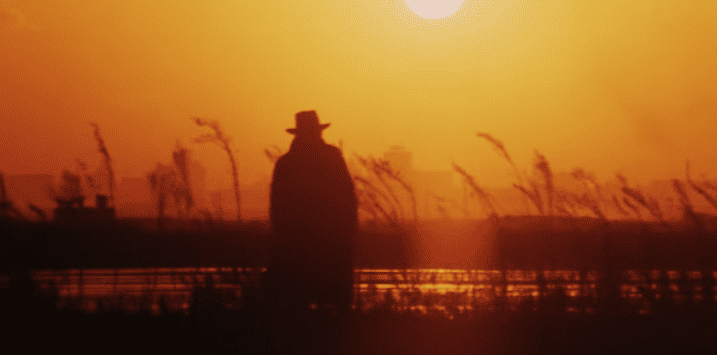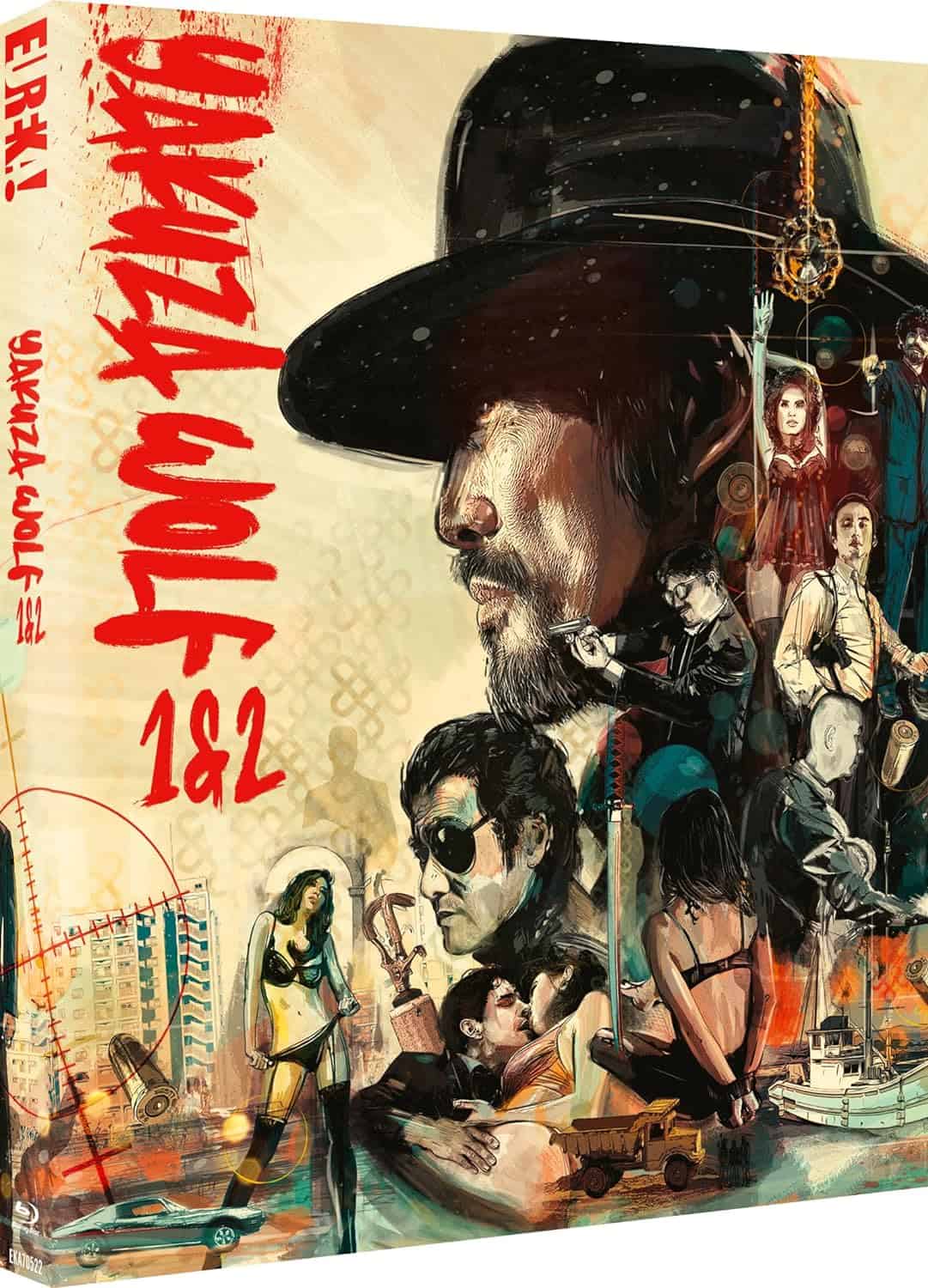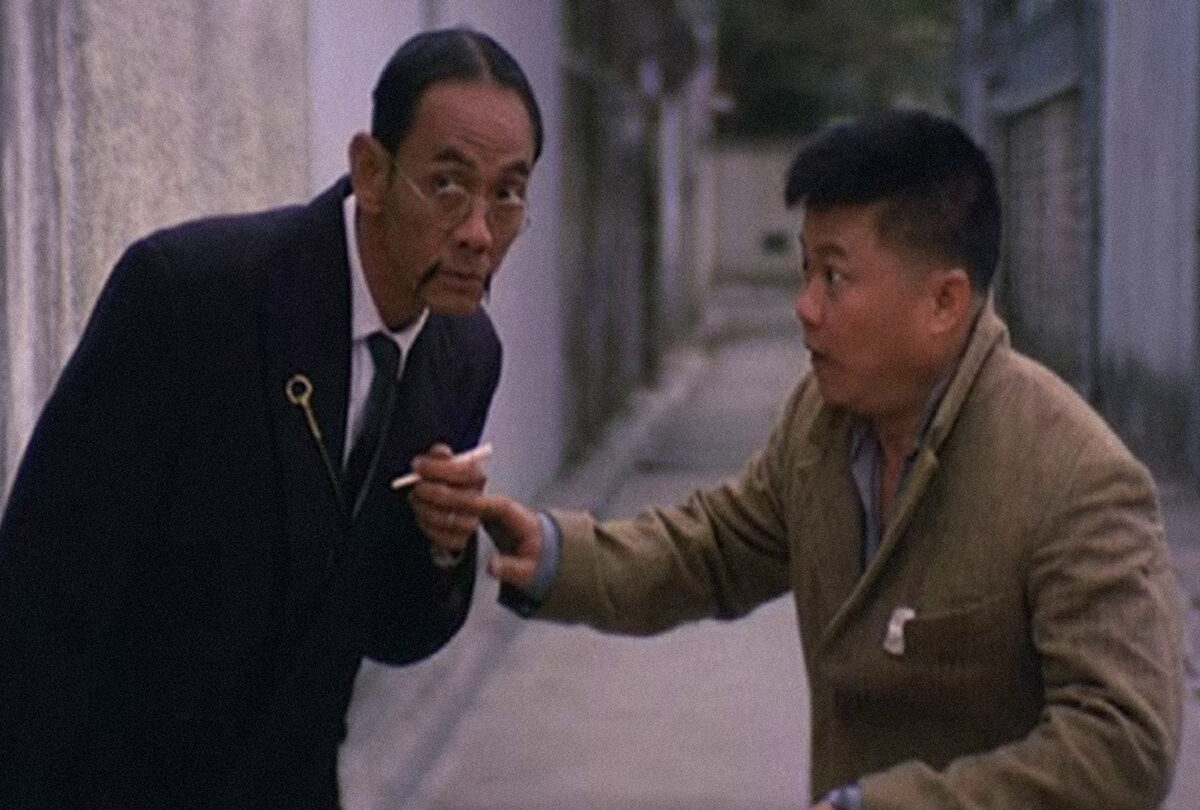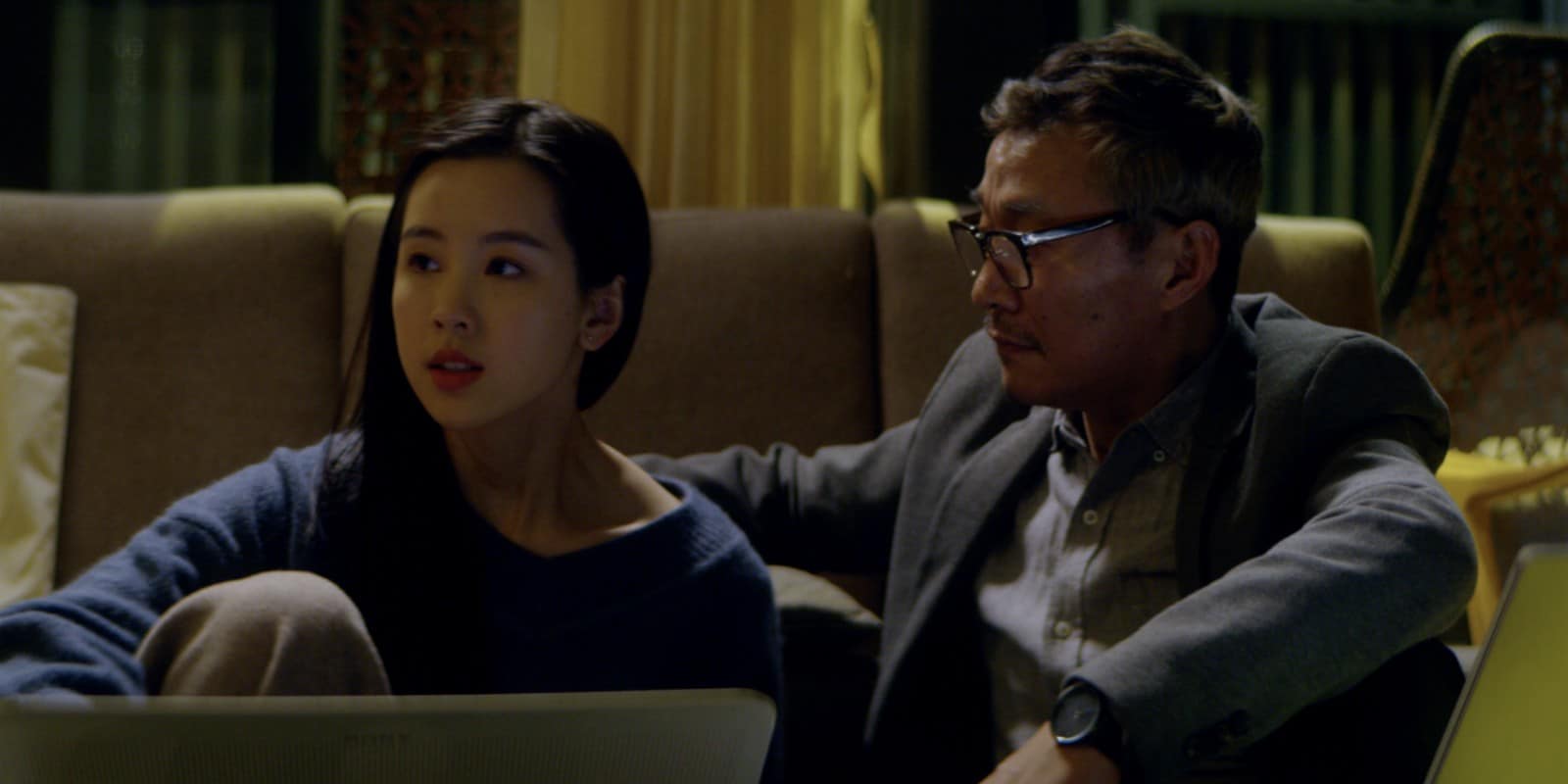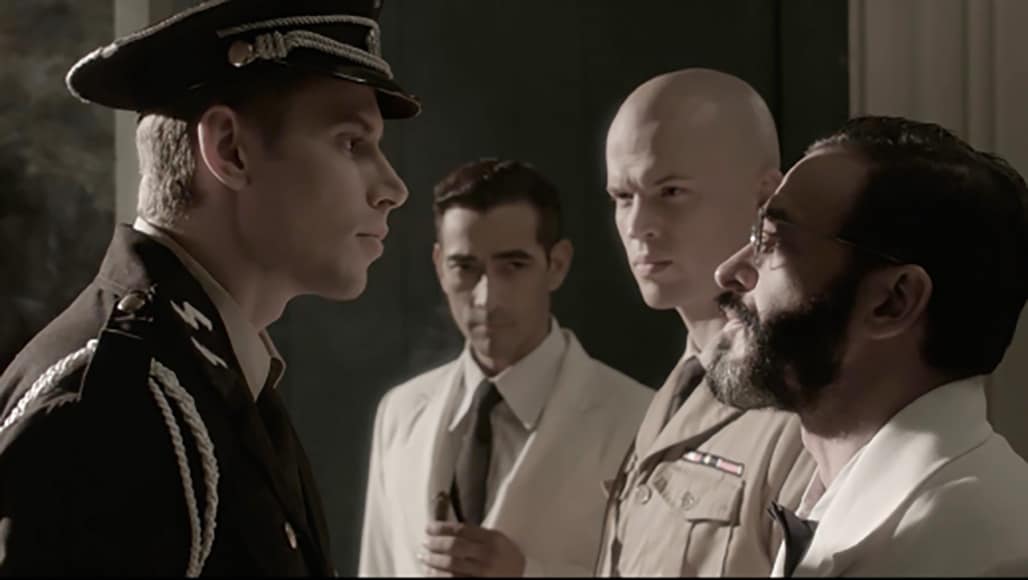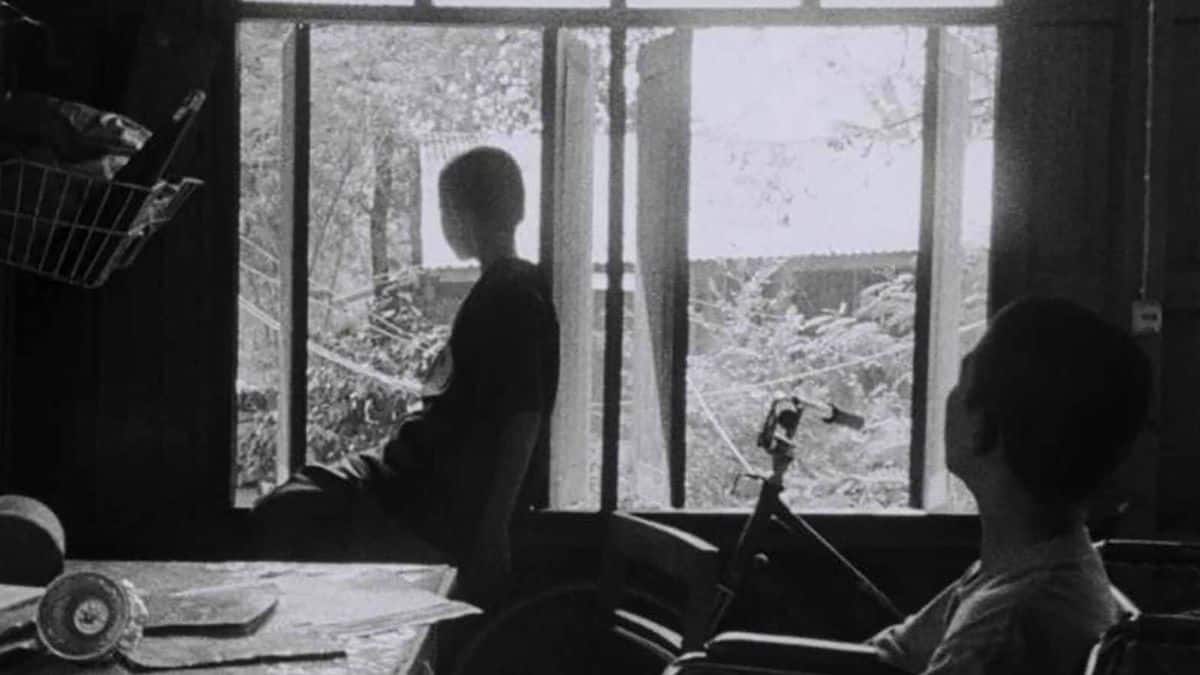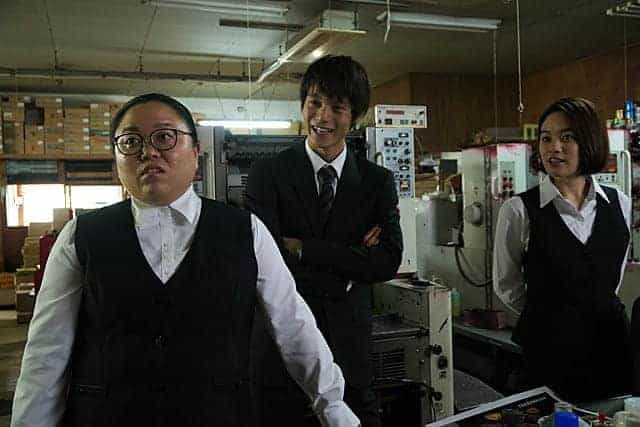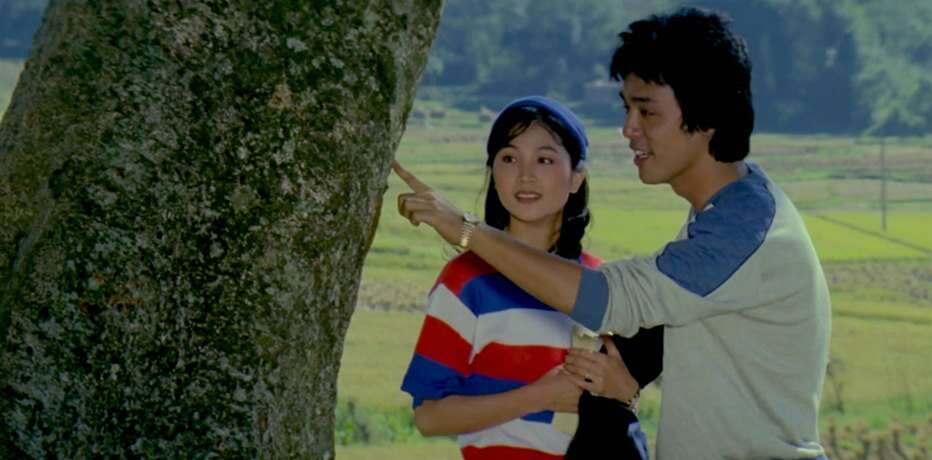Cinematic language can be universal. Visual images and styles can be reused and interpreted for different audiences quite easily with film fans quick to pick up on the influences. Take for example the Western. John Ford influenced Akira Kurosawa; Kurosawa influenced Sergio Leone who in turn inspired a number of Italian filmmakers in creating the whole Spaghetti Western genre. This visual language then proceeded to be imported across the globe. “Yakuza Wolf” is one such beneficiary of this transnational use of cinematic language. A blending of Yakuza action with a western flourish it's now available through “Eureka Entertainment” on Blu-ray. With its lead Sonny Chiba being rediscovered we have an opportunity to look back at a role that set him on course for bigger stardom.
Buy This Title
on Amazon by clicking on the image below
Gosuke Himuro (Sonny Chiba) is out for revenge. His father is dead and his sister Kyoko (Yayoi Watanabe) kidnapped. To find those responsible, he begins to play two Yakuza gangs off against each other. This brings him into conflict with the principled Ishiguro (Ryoji Hayama) and the more volatile Eguchi (Makato Sato). Inevitably, the conflict escalates and Gosuke finds himself badly beaten and isolated as his thirst for vengeance leads to personal tragedy and an ever-rising body count. With the police happy to let him carry out their work for them, it is just a question of who will be left standing once his one man mission concludes.
Despite the modern-day setting, “Yakuza Wolf” is indebted to Spaghetti Westerns for its visual stylistics to the point where it strips the modern setting away. Our main protagonist's apparel is reminiscent of the black clad avengers that frequented these films. The hand crushing and subsequent use of his gun is a direct nod to “Django”. The playing off of the two Yakuza gangs is a reference to “A fistful of Dollars” but also to its inspiration “Yojimbo”. As the opening credits roll, we get a beautifully silhouetted shot of Gosuke against a sunset. Like many protagonists, he is never seen to be rushing around. He strolls and walks slowly, giving the impression of complete control. It's only in some of the frantic editing that we see a link to the Japanese gangster films of the time. The rapid handheld movement in some of the clashes draws parallels with that of Kenji Fukuzaki's epic series of features at the same time. Yet even then, there is a stillness in the lead's movement that contrasts nicely with the chaos that surrounds him.
The increasing permissiveness of Japanese cinema at the time leads us, though, to some of the more troubling aspects on display. The move away from the more honorable Yakuza features of the 1960's led to both an increase of the violence on screen but also sexual violence. “Yakuza Wolf” contains not one but two rape sequences that are disturbing in their portrayal. The first one is seemingly played for laughs with two underlings bemoaning the fact that they have come before being able to participate in the gang rape of their victim. Our hero watches from the sidelines and doesn't intervene, as they are necessary to his revenge plot. It's an uncomfortable scene and you question the necessity in the overall narrative. The second is a flashback sequence which again asks the same question regarding its necessity. This portrayal of women, whilst of its time, is difficult viewing. The only time women appear in the running time is to either be raped or have sex. The nominal female lead has really two scenes, where she ends up sleeping with Gosuke, while professing her love for him in the second. This is a macho piece where women are objects to be used and discarded once finished with.
Sonny Chiba was yet to star in “The Streetfighter” series that would make his name internationally and was still finding his footing as a lead. The move to more aggressive characters suited his persona better on screen and this is no exception. His avenger is ruthless and quite happy to play everyone off against the other. We get a brief glimpse of humanity when he finally encounters his drug addled sister, only for tragedy to strike. It's an alpha male role and supported by a number of equally masochistic characters. In fairness, some of them are actually interesting with Ishiguro having a particular sense of honour despite his allegiance to his clan. There is a respect for Gosuke's skills in the manner of how one professional respects the other's abilities whichprovides a nice moment of pathos when he eventually receives his fate.
Visually. this is a fantastic feature filled with riffs on spaghetti westerns that give it a style of its own. The action is solid and suitably bloody for the time. Yet it also contains some dodgy sexual moments and violence that can make for an uncomfortable viewing for a modern viewer. It's a rare case of not knowing whether to recommend a film or not, as the positive aspects are equally balanced by the negatives.


